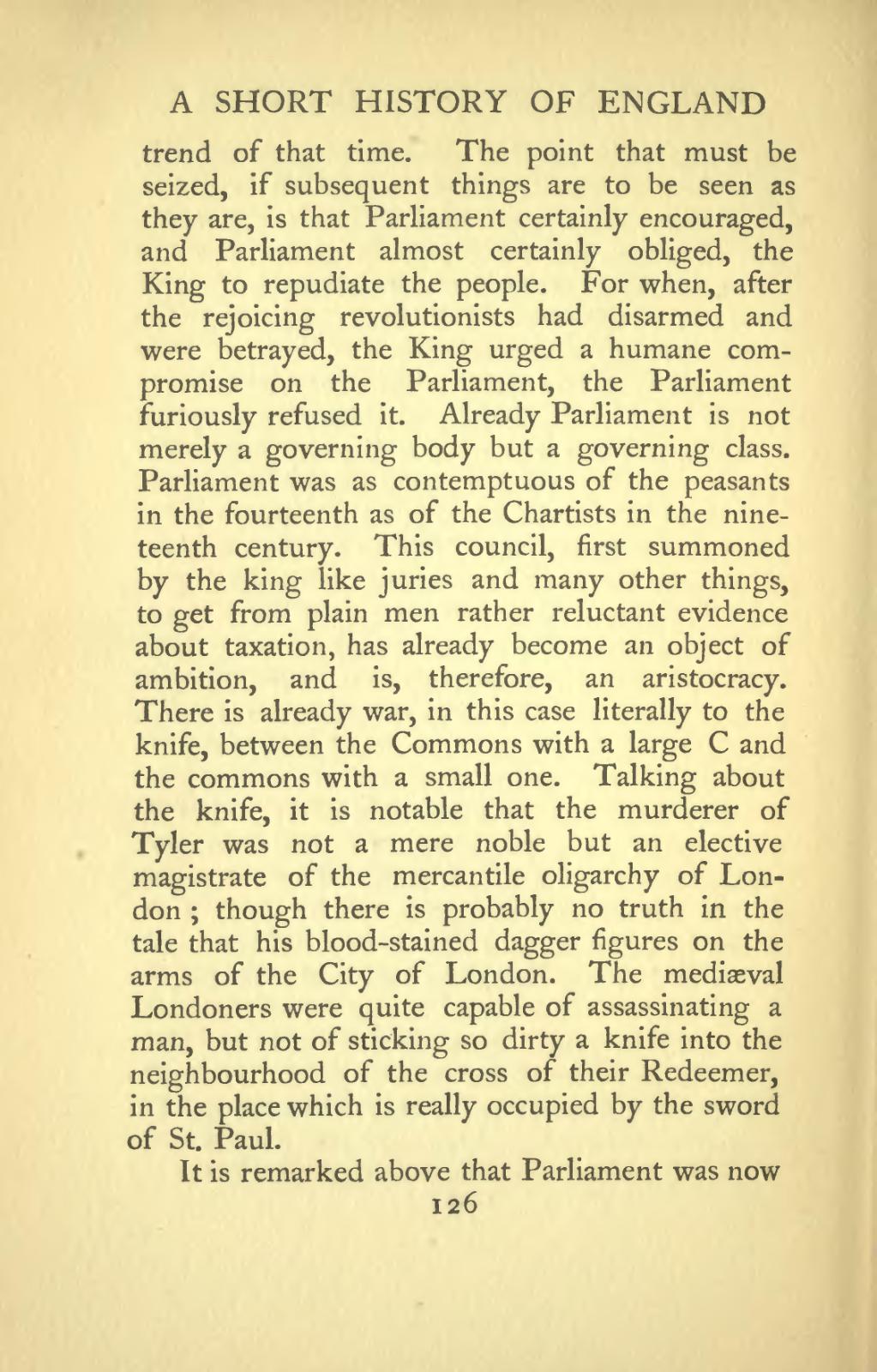trend of that time. The point that must be seized, if subsequent things are to be seen as they are, is that Parliament certainly encouraged, and Parliament almost certainly obliged, the King to repudiate the people. For when, after the rejoicing revolutionists had disarmed and were betrayed, the King urged a humane compromise on the Parliament, the Parliament furiously refused it. Already Parliament is not merely a governing body but a governing class. Parliament was as contemptuous of the peasants in the fourteenth as of the Chartists in the nineteenth century. This council, first summoned by the king like juries and many other things, to get from plain men rather reluctant evidence about taxation, has already become an object of ambition, and is, therefore, an aristocracy. There is already war, in this case literally to the knife, between the Commons with a large C and the commons with a small one. Talking about the knife, it is notable that the murderer of Tyler was not a mere noble but an elective magistrate of the mercantile oligarchy of London; though there is probably no truth in the tale that his blood-stained dagger figures on the arms of the City of London. The mediæval Londoners were quite capable of assassinating a man, but not of sticking so dirty a knife into the neighbourhood of the cross of their Redeemer, in the place which is really occupied by the sword of St. Paul.
It is remarked above that Parliament was now
